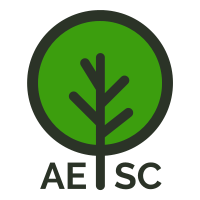This page contains information and resources that aim to help academics reduce their personal and institutional carbon footprints. We contribute to greenhouse gas emissions, for example, when we fly to conferences or host events. New technologies are facilitating alternatives to air travel, while providing ever-improving experiences for presenters and collaborators. Please peruse the information available through the links and documents that we will continue adding to this page.
RESOURCES
- University of Alberta, Moving Ideas without Moving People: How to E-Conference at the University of Alberta
- Ryan Katz-Rosene, Garrett Richards, Peter Shepherd, Constance Crompton, and Michael Jodah Kenny, “Climate change and academia: addressing the carbon footprint of scholarly conferences,” post-event report from the Environmental Studies Association of Canada, August 2018
E-Conferencing Grants
The Kule Institute for Advanced Study (KIAS), the Arts Resource Centre and the Energy Systems signature area are partnering to support small e-conferencing grants with a value of up to $6,000. Two grants will be awarded to projects led by researchers in the social sciences, humanities and arts. One grant will be awarded in the area of energy that is open to researchers across the university. This grant is sponsored by the Energy Systems signature area and the Future Energy Systems research program.
How to apply: Applications are due by Tuesday, October 15, 2019 and should be submitted via email to kias@ualberta.ca.
For more information please visit: www.ualberta.ca/kule-institute/funding/kule-econferencing-grant.
Articles related to air travel and other sources of the academic carbon footprint
- New York Times: “‘Worse Than Anyone Expected’: Air Travel Emissions Vastly Outpace Predictions“

